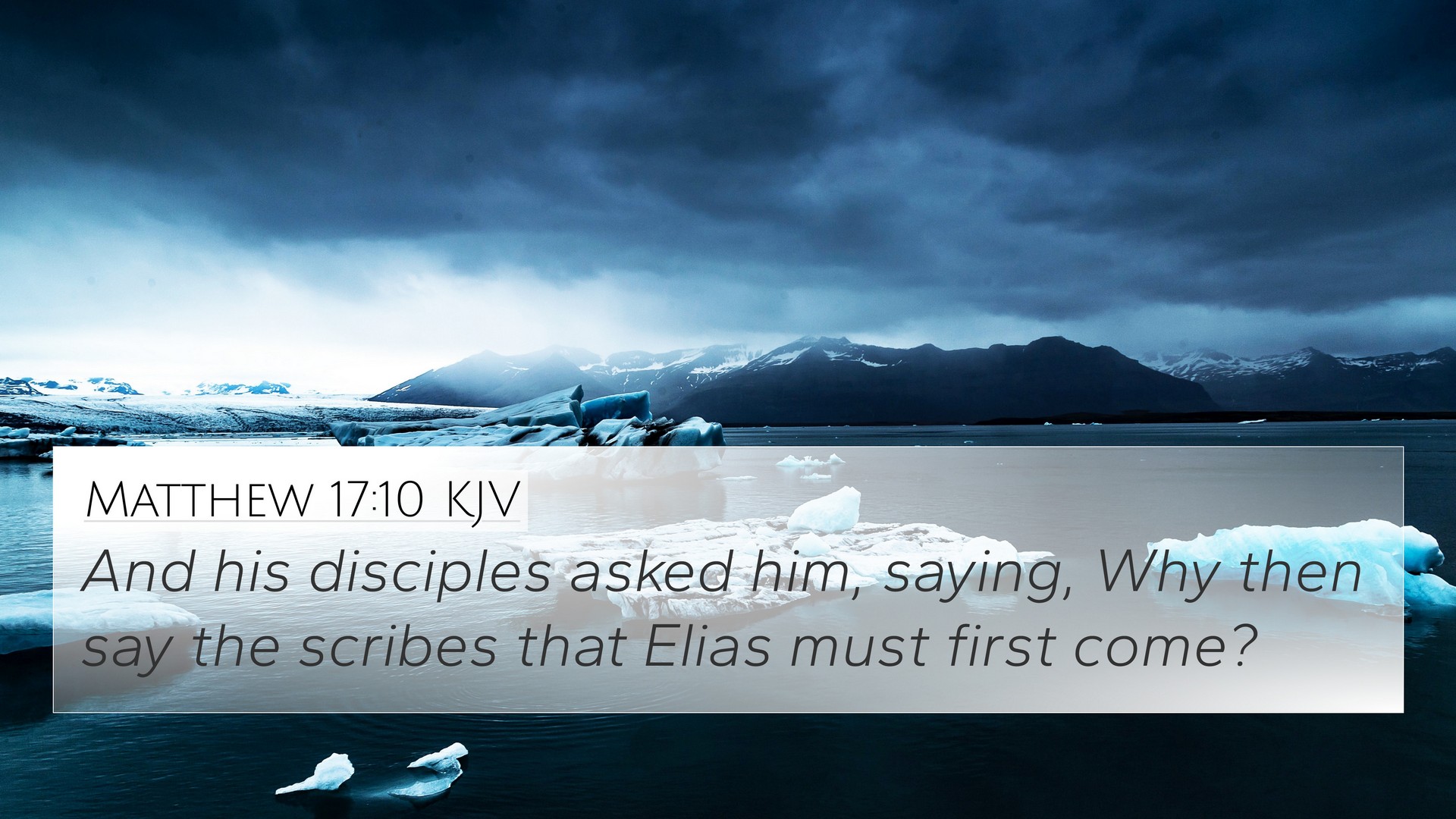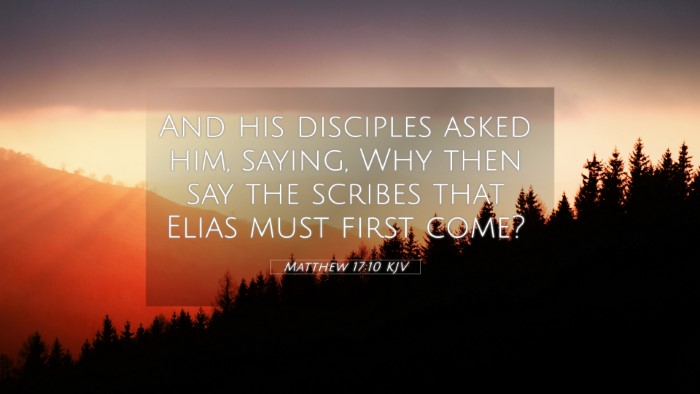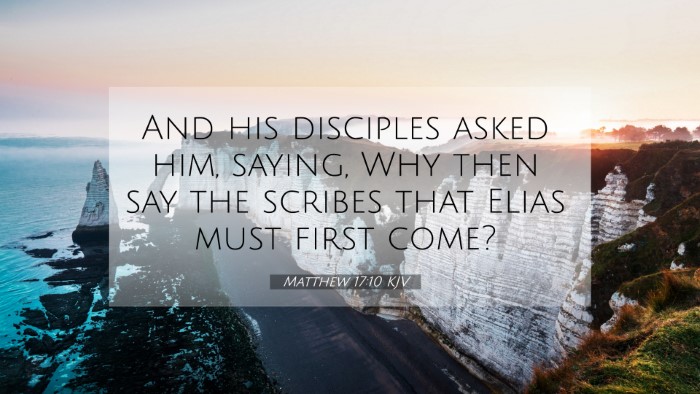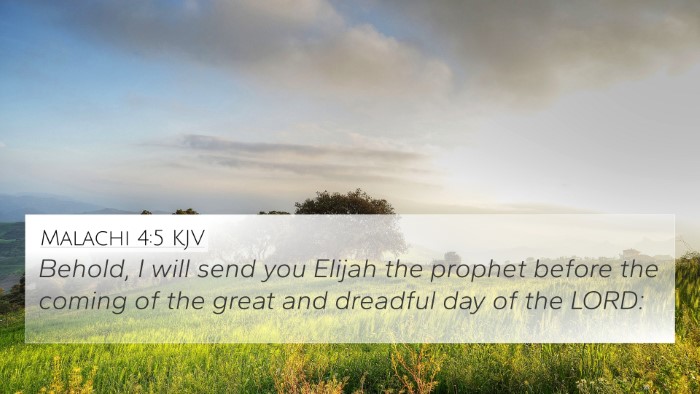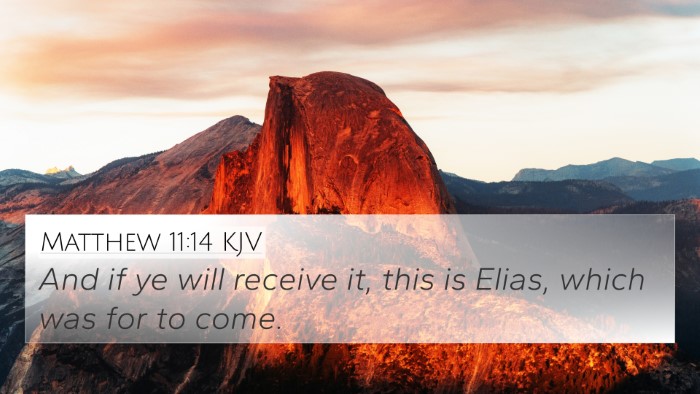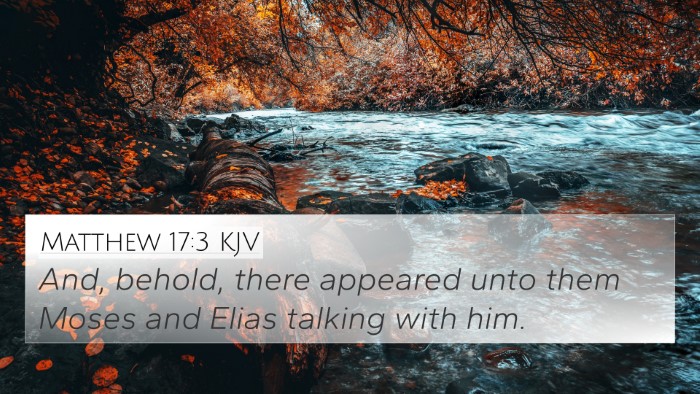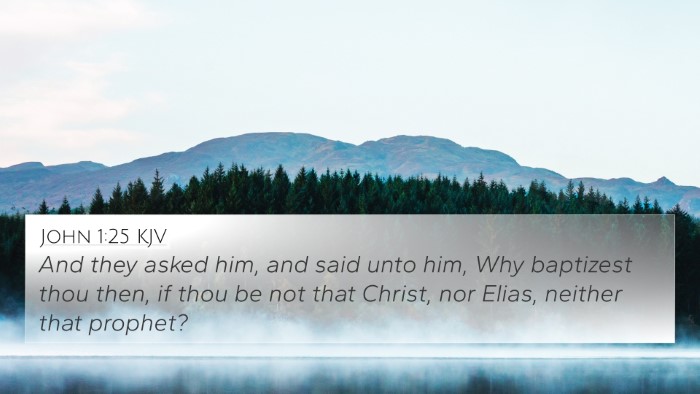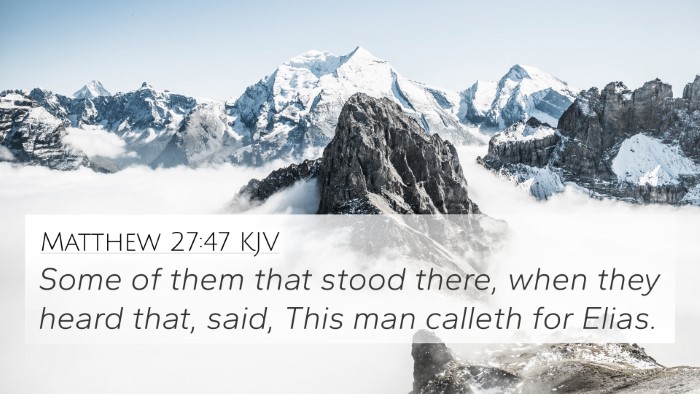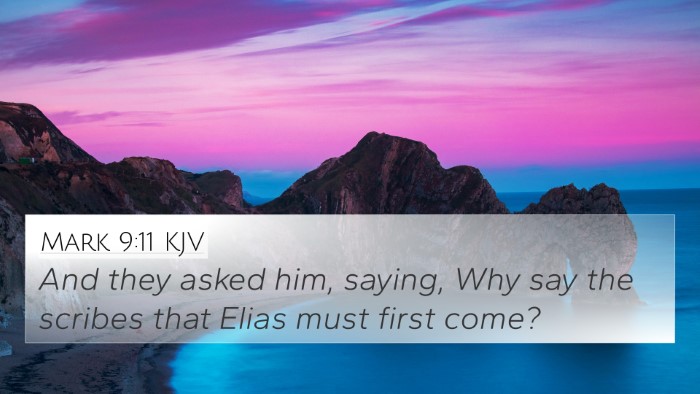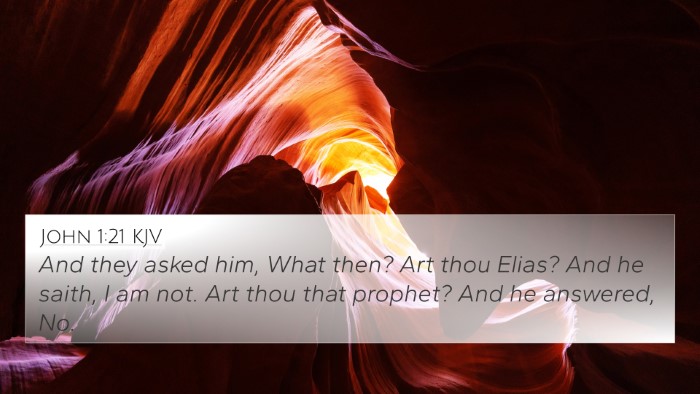Understanding Matthew 17:10
Bible Verse: Matthew 17:10 - "And his disciples asked him, saying, Why then say the scribes that Elias must first come?"
Summary of Biblical Meaning
This verse reflects a moment of inquiry from Jesus' disciples following the transfiguration event, where they witnessed a divine affirmation of Jesus' identity alongside Moses and Elijah. The disciples are perplexed about the prophetic necessity of Elijah's return as indicated in Jewish tradition, particularly in light of their recent experience.
Insights from Public Domain Commentaries
Matthew Henry Commentary
Matthew Henry explains that the disciples were grappling with the apparent contradiction of their understanding of prophecy, which suggested Elijah would return before the Messiah. This inquiry not only reveals their curiosity but also highlights the nuances in fulfillments of Old Testament prophecies.
Albert Barnes' Notes on the Bible
Barnes emphasizes that this question from the disciples illustrates the common Jewish belief regarding Elijah's return before the coming of Christ. He points out that their misunderstanding was not in the belief itself but rather in the timing and nature of its fulfillment, which Jesus later clarifies.
Adam Clarke's Commentary
Adam Clarke adds depth by discussing the significance of Elijah in Jewish eschatology and how his role was expected to precede the coming of the Messiah. Clarke mentions that the mention of Elijah serves as a bridge between the Old Testament prophecies and the New Testament revelations, providing key thematic connections.
Bible Cross-References
- Malachi 4:5-6: "Behold, I will send you Elijah the prophet before the coming of the great and dreadful day of the Lord."
- Matthew 11:14: "And if you are willing to accept it, he is the Elijah who was to come."
- Mark 9:11-13: "And they asked him, saying, Why say the scribes that Elias must come first? And he answered and told them, Elias verily cometh first..."
- Luke 1:17: "And he shall go before him in the spirit and power of Elias..."
- Revelation 11:3-4: "And I will give power unto my two witnesses... These are the two olive trees, and the two candlesticks standing before the God of the earth."
- Isaiah 40:3: "The voice of him that crieth in the wilderness, Prepare ye the way of the Lord..."
- John 1:21: "And they asked him, What then? Art thou Elias? And he saith, I am not."
- Matthew 16:14: "And they said, Some say that thou art John the Baptist: some, Elias; and others, Jeremias, or one of the prophets."
- Zechariah 4:14: "Then said he, These are the two anointed ones, that stand by the Lord of the whole earth."
- Luke 9:30-31: "And, behold, there talked with him two men, which were Moses and Elias: Who appeared in glory..."
Thematic Connections in Scripture
The themes of prophecy, messianic expectation, and the confirmation of divine authority weave through these verses, illustrating the continuity between the Old and New Testaments. The disciples' question reflects a broader narrative about the awaited Messiah and the role of prophetic figures such as Elijah.
Tools for Bible Cross-Referencing
For deeper study, various tools can assist with cross-referencing:
- Utilizing a Bible concordance helps locate verses by keywords.
- A comprehensive Bible cross-reference guide is invaluable for thematic studies.
- Engaging in cross-reference Bible studies enables a structured approach to understanding connections.
- Implementing a Bible cross-reference system can streamline the study process.
Conclusion
In conclusion, Matthew 17:10 invites believers to explore the intricate connections within scripture, fostering a richer understanding of prophecy and fulfillment in the life of Christ. The process of Bible cross-referencing enhances theological insights by demonstrating the harmony and depth of God’s word across disparate texts.
